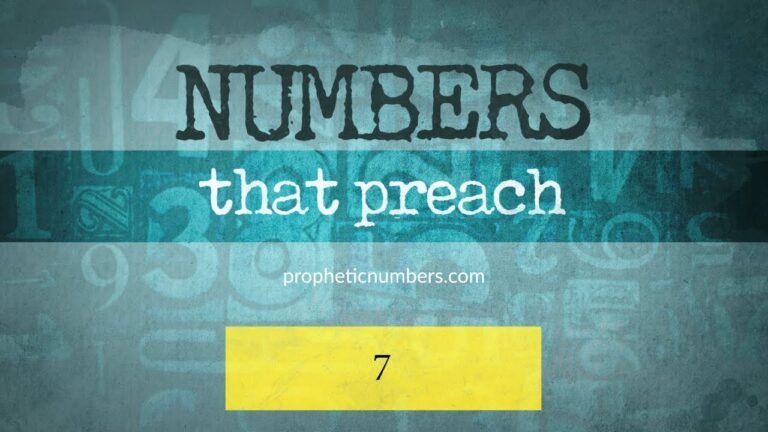Understanding the Definition of Maranatha
Maranatha is a term rooted in Aramaic, often translated as Come, Lord! It carries profound significance in Christian theology, symbolizing a longing for Jesus’ return and the hope for divine intervention in a world filled with challenges. This powerful expression encapsulates the essence of faith and anticipation, inviting believers to reflect on their spiritual journey and the promise of redemption. Understanding the definition of Maranatha not only enriches one’s grasp of biblical teachings but also inspires a deeper connection to the values of hope and community within the Christian faith.
What is the definition of maranatha in Christian theology?
In Christian theology, “Maranatha” is a significant Aramaic phrase that translates to “Come, Lord” or “Our Lord, come.” This term is often associated with the anticipation of Christ’s return and serves as a profound expression of hope and longing among believers. It encapsulates the essence of Christian eschatology, reflecting the faith that Jesus will return to fulfill His promises and establish His kingdom.
The usage of “Maranatha” can be traced back to early Christian communities, particularly in the New Testament. It appears in 1 Corinthians 16:22, where it emphasizes the urgency and yearning for divine intervention in the world. This phrase not only acts as a call for Christ’s return but also reinforces the idea of readiness and vigilance in the lives of believers, encouraging them to remain steadfast in their faith.
Furthermore, “Maranatha” has transcended its biblical origins to become a rallying cry in contemporary worship and spiritual reflection. It serves as a reminder of the hope that sustains Christians amid trials and tribulations. By invoking this phrase, believers affirm their faith in God’s promises and their desire for a deeper connection with the divine, making it both a personal and communal expression of their faith journey.
How is the term maranatha used in the Bible?
The term “Maranatha,” an Aramaic phrase meaning “Our Lord, come,” appears in the Bible as a profound expression of hope and anticipation for the return of Jesus Christ. Found in 1 Corinthians 16:22, it encapsulates the longing of early Christians for divine intervention and the fulfillment of God’s promises. This heartfelt plea not only reflects the urgency of faith in a tumultuous world but also serves as a reminder of the community’s shared belief in salvation and the ultimate restoration of all things. In its simplicity, “Maranatha” continues to resonate with believers today, inspiring a sense of unity and expectation for the future.
What is the historical significance of the word maranatha?
Maranatha, an Aramaic term meaning “Our Lord has come” or “Come, O Lord,” holds profound historical significance within early Christianity. It encapsulates the anticipation of Christ’s return, reflecting the fervent hope and longing of early believers for divine intervention in a tumultuous world. This phrase appears in the New Testament, particularly in 1 Corinthians 16:22, serving as both a greeting and a prayer. Its enduring presence in Christian liturgy and theology underscores its role in shaping the faith’s eschatological views, fostering a sense of community among believers while emphasizing the urgency of spiritual readiness. As a symbol of hope and expectation, maranatha continues to resonate through centuries, reminding the faithful of their ultimate purpose and connection to the divine.
Unraveling the Meaning Behind Maranatha
Maranatha is a term that resonates deeply within Christian theology, often interpreted as “Come, Lord” or “Our Lord has come.” Rooted in the Aramaic language, this phrase encapsulates a longing for divine presence and intervention. It reflects both an anticipation of Christ’s return and a recognition of his past arrival, inviting believers to embrace a profound connection with their faith. The emotional weight of Maranatha serves as a reminder of hope and renewal, encouraging followers to remain steadfast in their spiritual journey.
In modern contexts, Maranatha transcends its historical origins, emerging as a call for unity and purpose among believers. It inspires community gatherings, prayer sessions, and meditative practices that foster a shared sense of devotion. By invoking Maranatha, individuals unite in their quest for meaning, reinforcing their commitment to live out their spiritual values in everyday life. This timeless phrase not only symbolizes a personal yearning for the divine but also emphasizes the collective journey of faith, reminding us that we are all part of a greater narrative.
Exploring the Significance of Maranatha in Faith
Maranatha, an Aramaic phrase meaning “Come, Lord,” holds profound significance in the Christian faith, embodying a heartfelt yearning for divine presence and intervention. This simple yet powerful expression reflects the anticipation of Jesus’ return, serving as a reminder of hope and renewal amidst life’s challenges. As believers utter Maranatha, they affirm their commitment to spirituality and community, fostering a deeper connection with one another and the divine. This ancient cry resonates through generations, inviting reflection on the promises of faith and the transformative power of longing for a closer relationship with God.
Maranatha: A Call to Anticipate and Reflect
Maranatha invites us to embrace a spirit of anticipation, urging believers to look forward with hope and readiness. This call is not merely about waiting; it’s about cultivating a mindset that seeks to recognize the signs of the times and the presence of the divine in our everyday lives. As we navigate the complexities of the modern world, the essence of Maranatha encourages us to remain vigilant, fostering a sense of purpose and direction amid uncertainty.
In reflection, Maranatha also serves as a reminder to examine our hearts and lives in light of our faith. It calls us to consider how we can live out our values in tangible ways, embodying love, compassion, and service. This introspection can lead to a deeper understanding of our mission as individuals and as a community, prompting us to act with intention and integrity in all that we do.
Ultimately, Maranatha is a profound invitation to engage with both the past and future. It challenges us to honor our traditions while remaining open to new revelations and experiences. By blending anticipation with reflection, we can foster a dynamic faith that not only prepares us for what is to come but also enriches our present, allowing us to contribute meaningfully to the world around us.
The term Maranatha encapsulates a powerful blend of hope and urgency, calling believers to anticipate the return of Christ while reminding them of the importance of living out their faith in the present. Its rich historical and spiritual significance resonates deeply within the Christian community, serving as both a proclamation and a prayer. Embracing this profound definition invites individuals to reflect on their beliefs and encourages a deeper connection to their faith, ultimately fostering a sense of unity and purpose in their spiritual journey.







